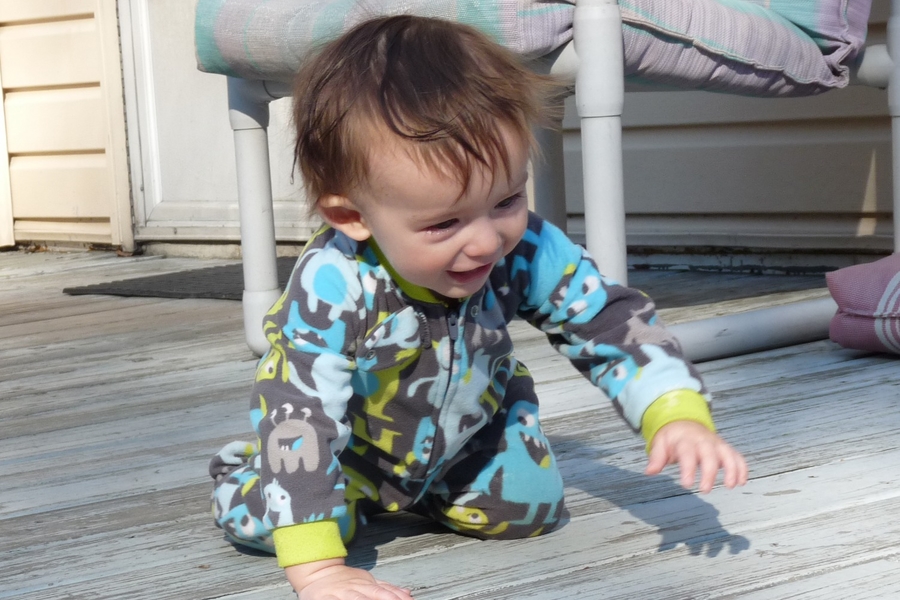
Track Your Baby’s Growth With This Ultimate Developmental Milestones Checklist
3 Jul 2018 | 4 min Read
Babychakra
Author | 1369 Articles
Babies grow very fast during the first two years of their lives. You, as a parent, need to keep up with the pace and monitor your child’s growth. This is where a developmental milestones checklist comes of use. Developmental milestones are those behavioural aspects and skills that your child gradually begins to showcase as a sign of healthy growth.
Here is a checklist of all the milestones that you should look out for at various stages of your baby’s life as motor skills, language, and emotional development.

First 60 Days
The first sixty days are the most delicate stage of your baby’s life. Within these two months, you will see some minor signs that show you how your child is blossoming every single day. Here are a few gestures and mannerisms that your baby may start to display at this age:
• Making fists with hands
• Starting to focus on objects nearly a foot away
• Recognizing sounds and voices
• Moving head from one side to another
• Holding a finger that is placed on their palm
Between 60 Days and 6 Months
Just as your child is nearing the six-month mark, you will begin to find signs of growth that you can track on the developmental milestones checklist. Check if your child is:
• Supporting its own head and neck
• Holding onto toys
• Following movement with eyes
• Bringing hand near mouth and face
• Making different sounds
• Smiling at random people and objects
• Bouncing up and down
By the First Birthday
As soon as you put one candle on your baby’s birthday cake, you will begin to see remarkable changes that you can cherish together as a family. Some of these are when your child has started:
• Rolling on to its stomach and then on to the back
• Sitting on its own without needing any support
• Laughing at different objects, movements, and people
• Saying single words like ‘mama’ or ‘papa’
• Crying when known faces (like yours) leave the room
• Beginning to walk after stumbling a few times
• Understanding various objects and their usage
• Imitating different words
• Using gestures such as shaking the head, nodding, waving, etc.
• Finding hidden objects
By the Second Birthday
This stage of your child’s life is known as the ‘toddler’ stage. Changes over the course of this year will become rapid. Some skills to check off the list are when you notice your child is:
• Feeding on its own without needing any help
• Uttering phrases with reasonable coherence
• Identifying objects with their names
• Dressing and undressing self with your help
• Carrying toys and other objects while walking
• Stacking building blocks or random objects on top of one another
• Imitating words, actions, and gestures of others
• Recognizing shapes and colours
Parting Words of Advice
When you have a checklist that guides you in monitoring your child, you will be more aware of the different milestones. This will help you understand whether you should be having any concerns about your little one’s development. While every child has its own pace of learning and growing, if you feel like your child is developing slower than usual or is lagging behind the milestone checklist by more than six months, consult a paediatrician.
At the same time, don’t forget to enjoy every part of this beautiful journey, starting from when your baby first rolls over to when it says its first word. Keep track, and don’t forget to save this developmental milestones checklist and be aware of your child’s progress every step of the way!
A


Related Topics for you
Suggestions offered by doctors on BabyChakra are of advisory nature i.e., for educational and informational purposes only. Content posted on, created for, or compiled by BabyChakra is not intended or designed to replace your doctor's independent judgment about any symptom, condition, or the appropriateness or risks of a procedure or treatment for a given person.
